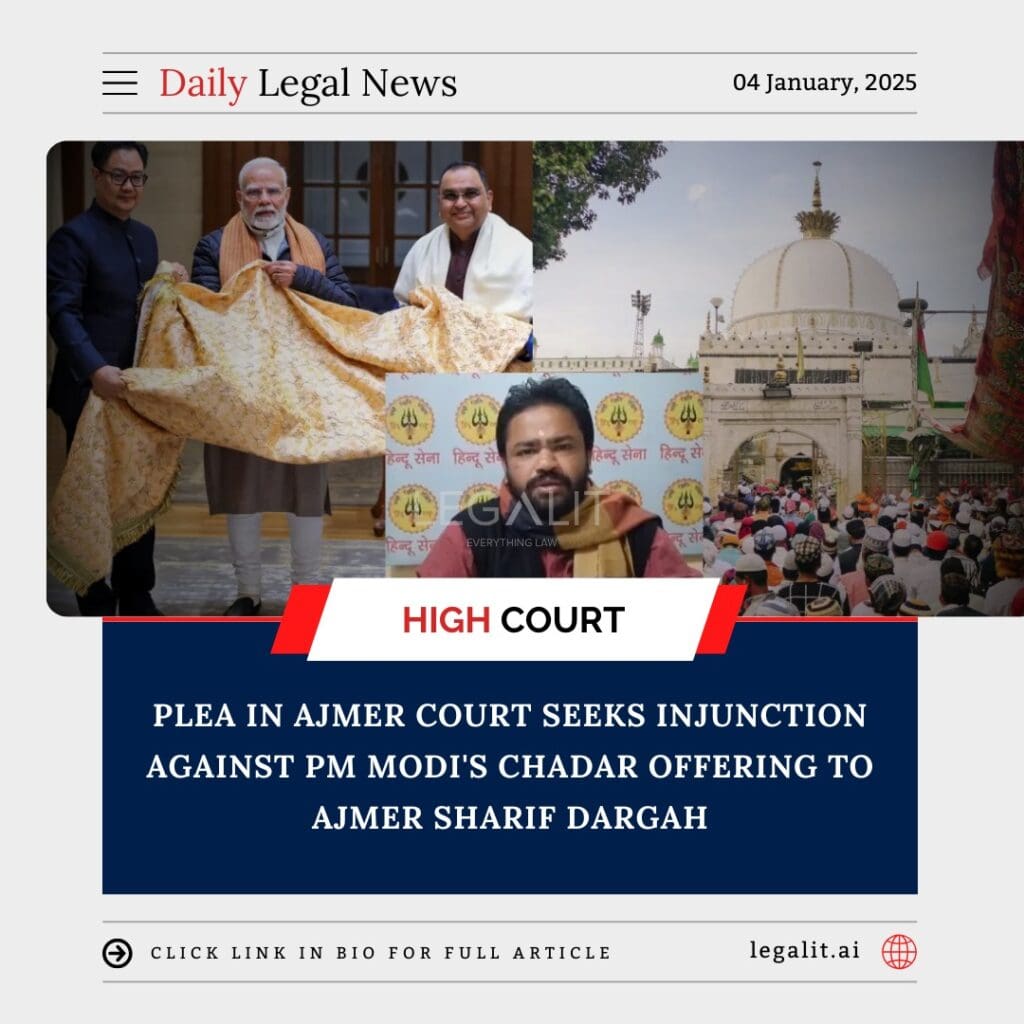
A plea has been filed in an Ajmer court seeking to restrain Prime Minister Narendra Modi from offering a ceremonial “chadar” at the Ajmer Sharif Dargah. The petition alleges political misuse of religious practices and raises questions about the sanctity of official protocol.
Background
The offering of a “chadar” at the Ajmer Sharif Dargah by political leaders is a long-standing tradition to mark the annual Urs of Khwaja Moinuddin Chishti. Prime Minister Modi has continued this tradition by sending ceremonial offerings as a gesture of respect and goodwill.
The petitioner, however, contends that such acts blur the line between religion and state, potentially violating the secular principles enshrined in the Constitution. The plea seeks an injunction to prevent the Prime Minister from sending a chadar on behalf of the government.
Arguments in the Plea
- Violation of Secularism:
The petitioner argues that using government resources or authority to make religious offerings amounts to a breach of the secular fabric of the Indian Constitution. - Political Symbolism:
The plea highlights the potential for such acts to be perceived as political moves aimed at garnering support from particular communities, rather than genuine acts of faith. - Misuse of Public Office:
It is alleged that the ceremonial offering could be construed as a misuse of the Prime Minister’s official position for religious endorsement. - Precedent for Religious Neutrality:
The petitioner has urged the court to set a precedent by disallowing such practices to maintain the neutrality of public officeholders in religious matters.
Legal Perspective
- Constitutional Framework:
Article 25 of the Constitution guarantees the right to freedom of religion, while Article 14 ensures equality before the law. However, Article 27 prohibits the use of public funds for promoting any religion, a clause that may be relevant in the court’s deliberations. - Judicial Precedents:
Indian courts have previously upheld the importance of maintaining secularism in governance while allowing personal religious practices of public figures. The outcome of this plea may hinge on whether the offering is deemed a personal act or an official gesture. - Role of Judiciary:
The court will need to balance the rights of individuals to practice their religion with the obligations of public officials to remain neutral in religious matters.
Possible Implications
- Reaffirming Secular Values:
A ruling in favor of the petitioner could reinforce the separation of religion and state, setting a benchmark for similar issues in the future. - Impact on Traditions:
Conversely, disallowing such offerings might lead to questions about the fate of other ceremonial traditions involving public officials across various religions. - Political Repercussions:
The case could spark debates on whether such legal interventions are necessary or if they hinder cultural and religious harmony.
Conclusion
The plea before the Ajmer court highlights a critical intersection of religion, politics, and governance. The court’s decision will likely have a broader impact on how ceremonial practices involving public officials are viewed in a secular democracy. It remains to be seen whether the judiciary will lean towards preserving traditions or ensuring stricter adherence to constitutional secularism.